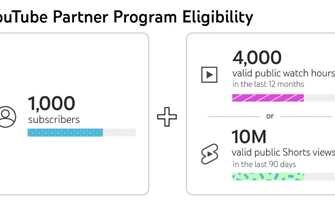
Are you looking to establish your online presence? Do you have a goal in mind but don’t know where to start? In this article, I will teach you the basic steps to connect with your target audience and create your own website.
First and foremost, you need to think of a name for your web. This name will define everything about your online presence, so take your time to brainstorm and come up with a unique and catchy name. Once you have a name in mind, it’s time to get a head start on your web development.
You might be thinking, “But I don’t have any knowledge about web development!” Thankfully, there are plenty of resources available online that can help you learn the necessary skills. You can take online courses, watch tutorials, or even hire a freelance web developer to assist you in this process.
Next, it’s important to do some research on your target market. Who are your potential customers? What are their needs and preferences? By understanding your target audience, you can better prepare your web content and design to meet their expectations. Plus, researching your competition will give you an idea of what makes an existing web successful and how you can stand out from the crowd.
Once you have everything in order, it’s time to start the actual development of your web. You can choose to develop it locally on your computer or use an online platform that offers web development tools. There are many options available, so choose the one that suits your needs and budget.
As you develop your web, don’t forget to keep the user in mind. Make sure your web is user-friendly, easy to navigate, and visually appealing. Plus, don’t forget to optimize your web for mobile devices, as more and more people are accessing the web through their smartphones and tablets.
Lastly, when everything is ready and your web is up and running, don’t forget to promote it. Use social media, advertising, and other marketing tactics to get the word out about your web. The more people know about it, the more likely you are to attract customers and generate revenue.
In conclusion, starting a web may seem like a daunting task, but with the right knowledge, preparation, and determination, it can be accomplished. So, get ready to dive into the world of web development and create your own online presence!
Thank you for reading, and good luck on your web journey!
- A beginners guide to web application development 2024
- Research your target market
- Clients
- Local businesses
- Other organisations
- Freelance contracting
- Establishing the level of competition
- Research current trends plus legal and tax issues
- Active Learning
- What exactly do I want to accomplish
- How could a website bring me to my goals
- What needs to be done and in what order to reach my goals
- Ready to Develop Your First Project
A beginners guide to web application development 2024
Web application development is a rapidly growing field, and with the ever-increasing reliance on technology, it’s becoming more important than ever to have a solid understanding of how to build web applications. Whether you’re looking to start a career in web development or simply want to expand your skillset, this guide will provide you with the knowledge you need to get started.
When it comes to web application development, there are a few key steps you should take in order to ensure your success. The first is to define your goals and determine what type of web applications you want to build. This will help you target your efforts and ensure that you’re working towards something that is worth your time and effort.
Once you have a clear idea of what you want to achieve, it’s time to start learning. There are many resources available online that can help you learn the necessary skills, from online courses to tutorials and articles. Take the time to research and find the resources that best suit your learning style and needs.
As a beginner, it’s important to start with the basics. Learn HTML, CSS, and JavaScript, as these are the building blocks of web development. Once you have a solid understanding of these languages, you can start branching out into more advanced topics like backend development and database management.
While learning is important, it’s also crucial to practice what you’ve learned. Building your own projects will not only help solidify your knowledge but also provide you with concrete examples to showcase to potential clients or employers. Consider building a personal website, a portfolio, or even contributing to open-source projects to gain real-world experience.
When it comes to finding clients and establishing yourself as a web developer, networking is key. Reach out to friends, family, and local businesses to see if they have any web development needs. Connect with other web developers and freelancers in the industry, as they may be able to provide you with valuable advice and potential leads.
It’s also important to think about the legal side of web development. Depending on where you live, there may be certain regulations and requirements you need to meet in order to operate as a web developer. Take the time to research and understand the legal aspects to ensure you’re in compliance with any necessary laws or regulations.
When it comes to pricing your services, it’s important to consider both your costs and the value you bring to clients. Don’t undervalue your skills and expertise but also be mindful of the competition. Research what other web developers in your area are charging and be prepared to negotiate and justify your rates.
Lastly, never stop learning and staying up-to-date with the latest trends and technologies in web development. The field is constantly evolving, and you’ll need to keep up if you want to stay competitive. Attend webinars, read industry news, and continue to expand your knowledge and skillset.
Starting a career in web application development can be a rewarding and lucrative venture. With the right knowledge and skills, you can open yourself up to a world of opportunities and potentially establish a successful business of your own. So don’t hesitate, get started today and see where your web development journey takes you!
Research your target market
When starting a web project or establishing a new online business, it’s crucial to research your target market. Knowing exactly who your potential clients are and what they are looking for is the key to creating a successful website.
One way to research your target market is by defining the area where your business operates. Are you targeting a small local area, or do you want to reach a wider audience? This will help you determine the level of competition and the available opportunities.
Thankfully, there are many ways to research your target market. One simple technique is to search for websites or directories that offer information about businesses in your area. This can give you a record of existing businesses and help you identify the types of clients you might be able to connect with.
Another important aspect is understanding the needs and preferences of your target market. Ask yourself questions like, what are their pain points? What are their goals or desires? This knowledge will guide you in creating a website that meets their specific needs and desires.
Once you have a clear understanding of your target market, you can prepare yourself to create a website that will appeal to them. This may involve choosing the right domain name, creating a website that is easy to navigate, and offering the right products or services.
It’s also worth considering the amount of money your potential clients might be willing to spend. Are they looking for budget options, or are they willing to invest more for a high-quality product or service? Understanding this will help you establish pricing and marketing strategies.
Remember, your target market is not a static entity. It’s important to stay active in research and stay updated on the latest trends and changes in your industry. This will ensure that your website remains relevant and continues to meet the needs of your target market.
In conclusion, researching your target market is a crucial step in starting a web project. By understanding who your potential clients are, what they need, and what makes them tick, you can create a website that effectively connects with them and helps you achieve your business goals.
Clients

When starting a web business, one of the most important aspects is attracting clients. Clients are the individuals or businesses that will spend money on your services or products. They are the ones who will ask questions, express their needs, and expect you to deliver what they want. It is through your clients that your web business will thrive.
But how do you attract clients? There are different techniques that you can use. One of the most common ways is through advertisements. You can create articles or mail-shots to promote your web business. Another technique is to list your business in online directories and search engines, where potential clients can easily find you.
When handling clients, it is important to keep in mind that each one is different. One client may require a simple website, while another may want a more complex e-commerce platform. As a web business owner, it is your job to guide clients and help them accomplish their goals.
It is also important to be open and transparent with your clients. Make sure to clearly communicate your pricing, contract terms, and project timelines. This will help build trust and create a good working relationship with your clients.
As a web business, you should always be prepared to handle different types of clients. Some may be beginners who need guidance and support, while others may have existing websites that need updates or improvements. No matter the situation, your goal is to bring value to your clients and help them reach their desired outcomes.
When it comes to targeting clients, it is important to focus on your niche. Determine the specific area or industry that you want to serve. For example, if you have a passion for working with musicians, your target clients may be local bands or music professionals. By focusing on a specific niche, you can become an expert in that area and attract clients who see the value in your expertise.
In order to bring in clients, you need to think about how to market your web business. What are the current trends in the market? How can you position yourself as a go-to resource in your niche? By staying up-to-date with the latest trends and constantly learning, you can stay ahead of the competition and attract clients who are looking for your specific services.
To attract clients, you need to have a ready portfolio of your work. This may include sample websites, case studies, or testimonials from previous clients. These key pieces of evidence will show potential clients what you are capable of and give them confidence in your abilities. Remember, a picture is worth a thousand words.
Never underestimate the power of networking. Reach out to your personal and professional networks and let them know about your web business. They may have connections or know someone who is in need of your services. Networking can be a valuable tool in expanding your client base.
When it comes to attracting clients, it’s not just about quantity but also quality. While it may be tempting to take on every client that comes your way, it is important to evaluate each opportunity and consider if it aligns with your long-term goals. Sometimes, saying no to a potential client can be more valuable in the long run.
In conclusion, attracting clients is a crucial part of starting a web business. Clients are the lifeblood of your business and it’s important to treat them with care and respect. By understanding their needs, staying current with market trends, and constantly improving your skills, you can attract and retain high-quality clients who will help your web business thrive for years to come.
Local businesses
When it comes to starting a web business, local businesses have unique needs to handle. They may include small shops, restaurants, cafes, or other establishments that offer goods or services to a specific community or area. Developing a web presence can help these businesses expand their reach and attract new customers.
One important aspect of starting a web presence for local businesses is ideation. Before diving into building a website, businesses should think about their target market and what they can offer to meet the needs of their local community. This knowledge will define the goals and the potential of the web project.
Once you have a clear idea of what your local business needs, it’s time to think about the website itself. You might consider learning basic HTML or hiring a freelance web developer to handle the technical aspects. It’s worth noting that building a website yourself can save you a significant amount of money, but you should also keep in mind legal issues, as different countries have different regulations surrounding online businesses.
When building a website for a local business, it’s essential to provide all the necessary information that customers might be looking for. This includes the business’s name, address, phone number, hours of operation, and a description of the goods or services they offer. It’s also a good idea to include any special offers or promotions to entice potential customers.
In addition to the basic information, you can also include a section on your website to showcase customer reviews and testimonials. This can help build trust and confidence in your business among potential customers who are considering using your goods or services.
To make your local business website even more useful, you might want to provide links to other relevant websites, directories, or resources that customers might find helpful. For example, if you have a restaurant, you could include links to local food blogs, online ordering platforms, or delivery services. This will give customers easy access to additional information and options.
Another important consideration is search engine optimization (SEO). By optimizing your website for relevant keywords and phrases, you can increase the chances of your local business appearing in search engine results when customers are looking for goods or services like yours.
Remember, the goal of your local business website is to attract and convert potential customers into paying customers. With a well-designed website and a solid online presence, you’ll be able to reach more people and grow your business.
In conclusion, starting a web presence for a local business requires careful preparation and attention to detail. By defining your goals, learning the basics of web development, and providing relevant information and resources to your customers, you can create a website that meets the needs of your local community and helps your business thrive.
Other organisations
When starting a web, it’s important to keep in mind that you don’t have to do everything on your own. There are plenty of other organisations and resources out there that can help you reach your goals and offer support along the way.
One such organisation is the local musicians’ association. They can provide valuable insight and guidance for beginners looking to learn the basics of web development. They may offer courses, workshops, or access to learning materials that can teach you the necessary skills.
If you’re a freelance web developer, you may want to look into professional associations or directories. These can connect you with other businesses in your area and offer networking opportunities. You can also benefit from mail-shot initiatives or active forums where you can share ideas and collaborate with others in the field.
For those interested in web design and ideation, there are organisations and websites dedicated to helping you prepare and define your goals. They can provide resources, tutorials, and even access to a network of mentors and like-minded individuals.
When it comes to issues like accessibility and inclusive design, there are organisations that focus specifically on these areas. They can teach you how to handle technique challenges and give you access to research and best practices.
Perhaps you’re interested in web photography or target audiences. There are organisations that specialize in these fields and can offer tips, guidelines, and advice on how to best showcase your work and reach your desired audience.
Finally, there are organisations that aim to bring together web developers and designers from different countries, creating a sense of community and fostering international collaboration. These organisations often host conferences or other events where you can meet other professionals and make new friends.
Never underestimate the power of joining forces with other organisations. They can offer a fresh perspective, new ideas, and a support system to help you overcome challenges. Plus, they can provide you with access to goodies you may never have discovered on your own!
Freelance contracting
Freelance contracting is a popular way for individuals to work independently and offer their services to clients around the world. This type of work allows people from different countries to connect and collaborate on various projects, regardless of their geographical location.
When starting a freelance contracting business, it’s important to think about your goals and what you hope to achieve. Are you looking to supplement your income or make freelancing your full-time career? This will help guide your decision-making process.
The first step in freelance contracting is finding clients. There are several ways to do this, including searching online job boards, networking with industry professionals, and joining freelance websites. It’s important to spend time developing a portfolio or record of your past work to showcase to potential clients.
Before you can begin contracting, there are a few important issues to consider. First, you’ll need to establish your own business name and register it, if necessary, in your local area. Depending on where you live, there may be certain legal and tax requirements that you’ll need to handle.
Once you’ve established your business, it’s time to start building your online presence. A website is essential for freelancers as it serves as a central hub for potential clients to learn more about you and your services. Your website should include information about your skills, experience, and any other relevant details.
In order to attract clients, you’ll also need to actively market yourself. This may include creating articles or blog posts about your area of expertise, using social media to promote your work, or even sending out a mail-shot to potential clients.
When connecting with potential clients, it’s important to be prepared and professional. Take the time to understand their needs and offer solutions that align with their goals. You’ll also want to establish clear communication channels and be responsive to their queries.
As a freelancer, you’re likely to work with clients from all over the world. This opens up a whole new world of opportunities but also presents some challenges. You’ll need to be mindful of cultural differences, time zones, and language barriers, as these factors can impact your ability to effectively communicate and deliver your work.
Thankfully, there are many resources and websites available to help freelancers navigate these issues. Additionally, by learning from experienced freelancers and staying current with industry trends, you’ll be better equipped to handle any challenges that may arise.
In summary, freelance contracting is a flexible and rewarding way to work. By establishing your own business, building a strong online presence, and actively marketing yourself, you can create a successful freelance career. Just remember to stay organized, communicate effectively, and always strive to deliver high-quality work.
Establishing the level of competition
Before you dive into the world of web development, it’s important to take a step back and assess the level of competition in your target market. Understanding the competition will give you valuable insights into what has already been done and what goals you can set for yourself.
There are several ways to research the competition, and here are some of the most effective methods:
- Take a look at other websites in your niche: Look at their design, layout, and content. This will give you a basic idea of what has already been done and what you can do differently.
- Search for similar websites in online directories: Here, you can find a list of websites in your industry and analyze them. Pay attention to their strengths and weaknesses.
- Read articles and blog posts about your target market: This will give you insights into the latest trends and developments in your industry.
- Connect with potential clients: Take the time to reach out to your target market and understand their needs and preferences.
- Research other countries: If your web development goals include expanding into global markets, it’s worth researching the competition in other countries as well.
Once you have a good understanding of the competition, you can begin building your web development strategy. This might include finding ways to stand out from the crowd, offering unique features or services, or targeting specific niches.
Remember, it’s not just about finding out what the competition is doing, but also understanding what they are not doing. This is where you can find opportunities to bring something new and valuable to the table.
Web development is a constantly evolving field, so it’s important to stay active and keep up with the latest trends and developments. Researching the competition is not a one-time task, but an ongoing process that you should revisit periodically.
In conclusion, establishing the level of competition is a crucial part of web development. By doing thorough research and understanding the market, you can position yourself well and accomplish your goals.
Research current trends plus legal and tax issues
When starting a web business, it’s important to research current trends and stay up-to-date with the latest developments in the industry. By doing so, you’ll be able to better understand what your potential customers are looking for and tailor your offerings to meet their needs.
One way to stay informed about current trends is to read articles and blogs that focus on the web business industry. These resources often provide valuable insights and tips that can help you stay ahead of the competition. Additionally, you can connect with other web entrepreneurs through online forums and social networking sites to exchange ideas and stay updated on the latest trends.
Another aspect to consider when starting a web business is the legal and tax issues that may arise. It is crucial to have a good understanding of the legal and tax requirements that apply to your business. This will ensure that you are operating within the boundaries of the law and avoid any potential legal or financial problems in the future.
One important legal aspect to consider is the need for a contract when working with clients or offering services. Having a clear and comprehensive contract in place can protect both parties involved and help establish a professional relationship. It’s always a good idea to consult with a legal professional to ensure that your contracts meet all necessary requirements and protect your interests.
Tax issues are also important to address when starting a web business. Depending on where your business is located, you may be required to register and pay taxes accordingly. Familiarize yourself with the tax laws and regulations in your jurisdiction and seek professional advice if needed to ensure compliance and avoid any potential issues in the future.
Overall, researching current trends and understanding the legal and tax issues that apply to your web business is essential for long-term success. By staying informed and prepared, you’ll be better equipped to navigate the challenges that come with starting a web business and accomplish your goals.
Active Learning
When it comes to building a web, active learning is key. Access to a vast amount of information can be overwhelming, but by learning and implementing a few basic techniques, you can handle the web with ease.
First, start by searching for potential ideas and trends in your area of interest. Look for websites that already exist and analyze what makes them successful. This will give you a good foundation for ideation and help you create a website that meets the needs of your target audience.
Next, consider your level of expertise and what skills you can bring to the table. If you’re well-versed in web development, creating a website from scratch might be the best option. However, if you’re a beginner, there are many freelance websites and web-building platforms that can assist you in accomplishing your goals.
Learning about the legal and tax requirements in your country is also a crucial part of web development. Without this knowledge, you could find yourself in hot water. Make sure to record and keep track of all financial transactions related to your web to avoid any potential legal issues.
Building a web is not a one-time task; it requires ongoing maintenance and updates. Staying up to date with current trends and techniques is essential to keep your website relevant and attractive to visitors. This could involve regular content updates, improving user experience, or implementing new technologies.
When it comes to finding potential customers and creating a market for your web, there are several techniques you can employ. One common approach is through mail-shot campaigns, where you target specific individuals or businesses with personalized marketing materials. Directories and online platforms can also be valuable resources for connecting with potential clients.
Another important aspect of web development is the design and aesthetics of your website. First impressions matter, so invest time and effort into creating a visually appealing and user-friendly interface. High-quality photos, well-structured content, and a clean layout can greatly enhance the overall experience for visitors.
Finally, never underestimate the power of continuous learning. The web industry is constantly evolving, and staying informed about new tools and technologies can give you a competitive edge. Participating in web-related forums, taking online courses, and networking with other professionals are all excellent ways to expand your knowledge and skills.
By following these active learning strategies, you can develop a web that not only meets the basic requirements but also stands out from the competition. Take the time to educate yourself and embrace new ideas, because in the world of web development, continuous growth is well worth the effort.
What exactly do I want to accomplish
Before diving into the world of web development, it’s important to have a clear understanding of what you want to achieve. Taking the time to define your goals and objectives will not only help you stay focused, but also ensure that the time and effort you spend on your web project is worth it.
First, think about where you want your website to be in terms of its purpose. Do you want to create an online presence for yourself or your business? Or perhaps you have a specific idea or application in mind, such as building a platform to connect musicians or a directory for local businesses. Whatever the case may be, it’s essential to define your niche and target audience, so you can tailor your web development accordingly.
Next, consider the potential challenges and issues that you might face along the way. Are there any specific technical skills you need to learn or areas where you might need help? It’s important to keep these factors in mind and plan accordingly. This might involve seeking out resources like tutorials, articles, or online directories to expand your knowledge or even reaching out to others for advice or collaboration. Remember, web development is an ongoing process, and you’ll likely encounter roadblocks, so be prepared to adapt and learn as you go.
Another important aspect to consider is the financial side of your web project. How much money are you willing to invest, if any? Are you planning to offer your web development services to clients or take on freelance projects to earn money? Defining your financial goals will help determine the scale and complexity of your web projects and guide you in making resource decisions.
Furthermore, it’s crucial to have a clear idea of what you want your website to look like and what features it should include. This includes selecting a suitable domain name, choosing a design technique, and deciding on the available content and functionality. Take the time to research current web design trends and analyze other websites in your niche to get inspiration and ideas.
Lastly, but most importantly, think about the end result you want to achieve. What do you want your website to accomplish? Are you looking to establish an online presence for your business, connect with potential clients, or simply have a platform to showcase your work? Understanding your ultimate goal will help shape the direction and purpose of your web development efforts.
In conclusion, before embarking on your web development journey, take the time to define what you want to accomplish. Identify your niche, understand the potential challenges, consider the financial aspect, and clarify your goals. By having a clear vision in mind, you’ll be better equipped to make the right decisions and stay focused on your web development journey.
How could a website bring me to my goals
Creating a website can be a game-changer when it comes to achieving your goals. Whether you are a small business owner, a musician, or someone looking to share your knowledge and teach others, having a website can open up a world of opportunities.
One of the main benefits a website provides is reaching a larger audience. Through the internet, you have the potential to reach people from all over the world. No matter where you are located, having a website allows you to expand your business or project beyond your immediate area. This means you can bring your product, service, or content to people who might not have discovered it otherwise.
Having a website also gives you credibility and professionalism. In today’s digital age, having an online presence is essential. When people search for information or services, they often turn to the internet. If your business or project doesn’t have a website, potential customers might question its legitimacy or professionalism. By having a website, you show that you are serious about what you do and that you are willing to invest time and effort into providing value to your audience.
Additionally, a website allows you to showcase your work or products. For example, if you are a photographer, you can create an online portfolio where you can display your best photos. If you are a musician, you can share your music and even sell your tracks directly through your website. By providing a visually appealing and easily accessible platform, you can attract more customers or fans.
Furthermore, a website can help you generate income. Depending on your goals, there are various ways to monetize your website. You can sell products or services directly through an e-commerce platform. You can also earn money through advertising or sponsored content. Additionally, having a website can lead to networking opportunities and collaborations with other professionals in your field, further expanding your income potential.
Lastly, a website allows you to gather valuable data and insights. By using analytics tools, you can track visitor behavior, including demographics, page views, and conversion rates. This data can help you make informed decisions about your business or project, allowing you to optimize your strategies and improve your results.
In conclusion, having a website is a must in today’s digital world. It can bring you closer to your goals by reaching a wider audience, establishing credibility, showcasing your work, generating income, and providing valuable data. Whether you are just starting out or already have an existing business or project, creating a website is a worthwhile investment that can help take your endeavors to the next level.
What needs to be done and in what order to reach my goals
If you want to start a web business in 2024, there are several steps you need to take in order to reach your goals. It may seem overwhelming at first, but with proper planning and organization, you can accomplish everything you set out to do. Here is a step-by-step guide on what needs to be done:
1. Research: Before diving into any new venture, it’s important to do your research. Find out more about the industry you want to enter, the existing competition, and the potential target audience. This research will help you understand the market better and make informed decisions.
2. Set clear goals: Establishing clear goals is vital for any business. Determine what you want to achieve with your web business and set specific, measurable targets to work towards. This will give you a clear direction and help you stay focused on what matters most.
3. Plan your finances: Starting a web business requires an investment of both time and money. Calculate how much money you need to start and operate your business for at least the first year. Prepare a detailed budget and consider how you will fund your business, whether it’s through personal savings, loans, or investors.
4. Create a business plan: A well-thought-out business plan will serve as your roadmap to success. Outline your business mission, vision, and strategies for achieving your goals. Identify your target audience, your unique selling points, and your marketing strategies. This will help you make informed decisions and stay on track as you work towards your goals.
5. Build your online presence: Once you have your business plan in place, it’s time to start building your online presence. Create a professional website that reflects your brand and showcases your products or services. Use high-quality photos and compelling content to attract clients and make a great first impression.
6. Find and engage clients: One of the most important aspects of starting a web business is finding and engaging clients. Utilize online directories, social media platforms, and other digital channels to reach your target audience. Offer value through informative articles, engaging photos, and special promotions to attract and retain clients.
7. Establish legal and financial structures: As your web business grows, it’s important to establish legal and financial structures to protect yourself and your assets. Consult with a lawyer or accountant to ensure you’re compliant with all regulations and to set up the appropriate legal structures. This will give you peace of mind and help you focus on growing your business.
8. Learn and adapt: The web business landscape is constantly evolving, so it’s crucial to keep learning and adapting. Stay updated on the latest industry trends, technology advancements, and customer preferences. Continuously improve your skills and stay proactive in finding ways to better serve your clients.
9. Network and collaborate: Reach out to fellow web businesses, industry experts, and potential partners. Networking and collaboration can open up new opportunities, bring in referrals, and help you gain valuable insights. Attend industry events, join online communities, and offer your expertise to build your professional network.
10. Stay focused and motivated: Starting a web business is not always easy, but staying focused and motivated is key to reaching your goals. Set aside dedicated time each day to work on your business and stay disciplined. Surround yourself with supportive friends and family who believe in your vision and can provide encouragement when needed.
Remember, starting a web business takes time and effort. It’s important not to get discouraged and to keep pushing forward. Stay patient and celebrate even small victories along the way. With the right mindset and dedication, you can accomplish your goals and build a successful web business.
Ready to Develop Your First Project
When it comes time for me to start a web project, I often find myself already looking for the right sort of guide to help me through the process. What I’ve learned is that there are many ways to learn how to create a website and find the information you need. Thankfully, there are plenty of resources available that can give you the information you need to get started. Whether it’s through online articles, books, or video tutorials, you’ll be able to find the information you need to start your project.
One important question to ask yourself when starting a website is: What is your current skill level? If you are just starting out, you might want to start with a simple website that will allow you to learn the basic techniques and requirements. On the other hand, if you already have some experience and are looking to take your skills to the next level, you might consider developing a more complex website or application.
Another important factor to consider is your target audience. Are you looking to create a website for a specific niche or market, or are you looking to create a website that will appeal to a broad range of people? This will influence the design and content of your website, as well as the techniques you will need to use to attract and engage your audience.
Once you have a clear idea of your target audience and their needs, you can start to brainstorm ideas for your website. You may want to research current trends in your area of interest to ensure that your website is up to date and relevant. You may also want to research your competition to see what they are doing well and how you can differentiate yourself.
In order to prepare for your web project, you’ll need to gather all of the necessary resources and tools. This includes finding a domain name, securing hosting, and gathering any necessary software or plugins. You’ll also need to determine how much time and effort you are willing to put into the project, as building a website can be a time-consuming process.
It’s important to remember that starting a web project is not a one-time event. Your website will require ongoing maintenance and updates to stay current and active. Plus, you’ll want to continue to learn and grow your skills as a web developer.
Ultimately, starting your first web project can be both exciting and challenging. But with the right preparation and resources, you can accomplish your goals and create a successful website.










